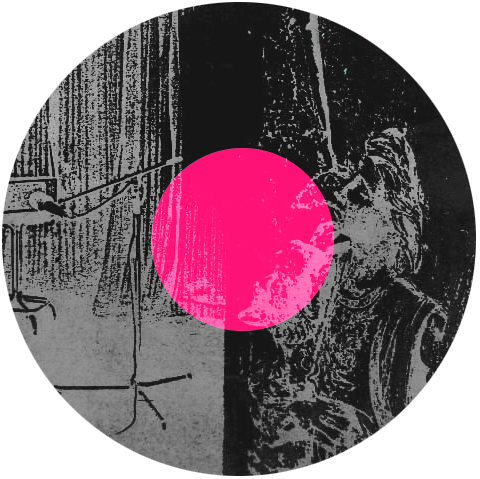Posts on: post-punk

I may as well begin this roundup with a frank admission: at the beginning of this year, I did not know how to read.
Sure, I knew the technicalities: I was familiar enough with the particular socially agreed match-up of phonemes, graphemes and meanings that constitutes the English language. Familiar and capable enough, in fact, to practically inhale vast quantities of the written word. But we should be clear in asserting that such an ability to automatically respond to linguistic cues is not the same as reading, thinking, or intellectual practice in general. While it is such a practice’s necessary precondition, it is not the practice itself, which maintains its own singularity and uniqueness. For it is one thing to inhale, quite another to extract from that inhalation the oxygen that nourishes our intellectual bloodstream.
Things are changing, though. Last month, all too late in the year, I started a reading diary as a place to log my preliminary thoughts about the stuff I was reading, which were previously transiently flowing through me only to get lost in the aether. Principally, the diary is an attempt at commitment: a practice of staying faithful to and honouring the transformative impacts that books have on me, of – in Badiou’s terminology – showing fidelity to the Event (of reading). In our first readings of books, all we are left with is an accumulation of (positive or negative) sense-impressions or thoughts (“that bit was cool” “this bit was boring” etc), and maybe a few notes in the margins. Our duty after this first reading is to almost immediately begin a second reading, which drills into those particular sense-impressions and tries to clarify them, work out what in the book caused them to happen, at a level detached from (yet immanent to) the immediate experience of reading the book. This is what the practice of keeping a reading diary allows one to do: to give ourselves up to the books, to fully and psychedelically follow the path away from our “selves” that they set in motion.
Taking its cue from the reading diary, then, the principle of this roundup is precisely the opposite of showboating. Initially, the plan was simply to post a list of what I’d read this year, as some kind of achievement – but it quickly became apparent that this would be of no use to anyone, least of all me. A list such as that is like the initial material extracted from a mine, or the raw data collected by some online marketing platform: crude, incoherent, quite simply not ready. It is an uninviting mass that, far from being galvanised by some kind of connective or inspirational principle, simply lies there as sheer magnitude. A big, mangled rock of readings of philosophy, music criticism, literary modernism, SF and gothic horror, that no one wants to touch. (And even if, perversely, they wanted to, they wouldn’t know where to begin.)
When heaved and lugged onto the platforms of social media, those digital mirrors that provide the contemporary self with the reflected image that it mistakenly identifies itself with, this big mangled rock can only be self-serving and exhibitionist; a pseudo-intellectual form of dick-swinging. And lest it not be obvious, this is precisely what this blog stands against: the transmogrification of intellectual practice – quite simply, the practice of staying true to the Truth – into a putrid careerist ego-fiction. Intellectual practice cares little for what books are ostensibly “about”; it does not read blurbs. Instead it seeks to channel the real conceptual movements that weave through texts, extending and intensifying them into new, unknown zones. It operates in the underscore.
The below, then, has nothing to do with me. I can only predictably concur with k-punk when he wrote in 2004 that “writing, far from being about self-expression, emerges in spite of the subject.” And so it is with reading: when accumulated under the subjective frame of being “things I read”, the readings below can only appear as crude material, a mass of undifferentiated junk characterised only by its magnitude. But when the raw material is felt, held, and cradled, one begins to notice patterns; protruding excesses are transformed into murder mystery clues, ambivalent signs of something far stranger – and far beyond – any personal subject. (Adorno: “Every work of art is an uncommitted crime.”)1
What follows is therefore “my 2020 reading” as it deserves to be presented and acknowledged2. Not an individual ego-fiction, but various plateaus or planes of consistency, impersonal threads of connection. Not tightly policed “schools” of interiorised thought, but the open fields of the Outside. (Deleuze-Guattari: “A book itself is a little machine… [it] exists only through the outside and on the outside.”)3
Inherently defined by such an openness to the outside, such threads of commonality naturally bleed into and cross over each other – where does one field “end” and other “begin”? – and I will likely end up repeating myself. This is no problem, though: in fact it is precisely what allows us to see the works in their true form: flaming sites of multi-vehicle pile-up, the singular points of collision and intersection of the various planes of consistency that cut through them.
Or to put it more classically, we can say that this messy excess of cross-bleed is what allows us to stop seeing books as self-contained parts, and instead as particular instances of the Universal.
When one knows this, one knows how to read.
-
Theodor Adorno, Minima Moralia, part 72, “Second harvest”. ↩
-
Editorial notes: The below includes a mixture of books and shorter length pieces including articles, essays, interviews, blogposts, etc. A few things – some of them exceptional – have been left out, for one of two reasons: (1) because they did not seem to belong to any of the common threads that were at work in my reading this year (which is fine); and (2) because I either thought they were just not very good, or I still do not “get” them, or how to put them to use. ↩
-
A Thousand Plateaus, p.2. ↩

Xenogothic was right: this interview with Terre Thaemlitz is absolutely essential reading, and a true demonstration that true psychedelia, and perhaps even true punk, is served ice cold.
Thaemlitz is a useful figure because, as a musician and DJ (though they, understandably, prefer the term “media producer”) rather than some dreary academic, they represent how coldness indexes not a lack of joy but a higher state of it. The typical image of “being cold” evokes a miserabilism that refuses to accept change or do anything different, which is quite literally frozen into particular habits. But this only holds if one sees coldness as an absence of heat, rather than thinking coldness in itself. The question that Thaemlitz, producer of chilly deep house classic 120 Midtown Blues, thus prompts us to ask, then, is: where does coldness lead us, if not nothingness?
Read More »

Full on lockdown has finally given me the chance to finish Simon Reynold’s mammoth volume on post-punk, Rip It Up and Start Again. I’ve already mentioned the book twice on this blog (#1, #2), and for good reason: it’s an extraordinarily fun and informative read.
Despite being journalistic in style, committed to and bound by the sheer actualities of what happened, Rip It Up and Start Again reads like a loosely-arranged novel, with recurrent characters, motifs, and themes perpetually cropping up, disappearing, and then re-appearing in other contexts. Indeed, it reminds me of anthology TV series such as Easy or High Maintenance: always grounded in one lifeworld – in this case, the post-punk milieu – but always entering (and exiting) it from different perspectives, different bands, different periods, thereby allowing the singular consistency alongside the sheer complexity and multiplicity of the lifeworld to be expressed. It’s precisely this mode of composition that makes Rip It Up such a joy to read: it faithfully expresses post-punk not as some historical artefact bound by chronology and stuck in the past, but as an almost timeless countercultural milieu, sensibility or organism that one can tap into and channel in the here and now. The stories and anecdotes regaled in the book aren’t just thrilling because they express something that, unbelievably, happened (see below for a list of just some of these), but also because they express a potentiality in the present, a set of resources and practices to be simulated and put in motion. In short, the book doesn’t just make you want to read more about bands: it makes you want to start a band yourself.
The book functions through its 26 chapters which simultaneously possess a singularity (each focuses on a particular “scene”, for example late 70s New York No Wave, the rise of British indie labels such as Rough Trade, or the antics of producer Malcom McLaren) while expressing a larger whole (the aforementioned post-punk milieu). Contained within these chapters are some remarkable anecdotes and stories that, as argued above, really fire up one’s imagination, jolt one into laughter, disgust, or disbelief (sometimes all at once). They’re wonderful little nuggets, charged with a countercultural libidinal energy.
At 537 pages*, though, the book is a hefty volume, and it’d be a shame for its countercultural libidinal potential to be blocked because of that. So, both as a tribute to the book and as a way of extending its countercultural archive, here I’m going to retell and recap my favourite anecdotes, characters, and themes from the book in digested form. Hopefully this imparts just a slither of the post-punk energy onto you, dear reader, or even better, it will get you to read the book yourself…
More via the ‘Read More’ button…
Read More »
The Fisher-Function has routed itself so thoroughly in my neural circuitry that I am no longer just echoing and citing k-punk (at an almost embarrassingly high frequency) but anticipating its thoughts accurately. Upon reading some posts on Nietzsche in an attempt to help me get some bearings on the notorious philosopher, I came across this passage from a 2006 post that spectacularly wires together Nietzsche and Celebrity Big Brother:
Read More »